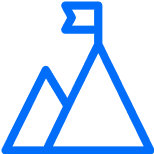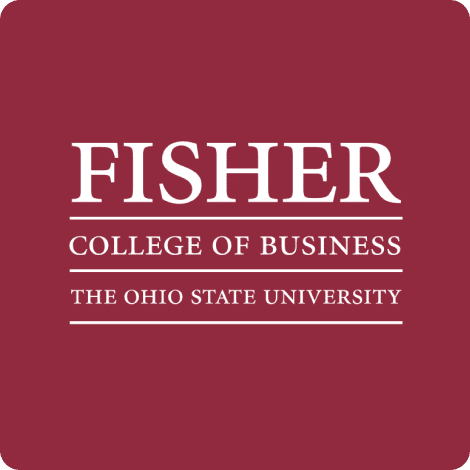At Notre Dame University’s Mendoza College of Business, a mission to enroll purpose-driven leaders is at the core of the school’s admissions decisions. Celebrating its 100th anniversary in 2021, the school’s rich history, awe-inspiring alumni network, and consistently strong rankings attract a wide audience of applicants.
Recognizing how difficult it was to ascertain their applicants’ academic aptitude, social capabilities, as well as their potential to succeed in their chosen field from only a resume, transcript, test scores and a couple of essays, Mendoza sought out a better way to connect with their applicants.
In 2015, the school added timed video and timed written questions through Kira Talent, as a way to give applicants the ability to exhibit their full potential while simultaneously streamlining the overall process for the admissions team.
Starting with the MBA program, Mendoza has since expanded their use of Kira assessments across multiple graduate business programs, providing the team with a more multi-dimensional picture of who an applicant is, beyond what they can show on paper.
Getting to know applicants earlier and more efficiently
Prior to Kira, Mendoza conducted interviews on a rolling basis, interviewing around 90% of all applicants who applied. Although this helped give the team a more well-rounded view of their applicants, the burden on the team was significant.
“The process was overwhelming our recruiting and admissions teams. Coordinating the interviews, with all the scheduling and rescheduling, and accommodating different time zones, was labour-intensive,” shared Maria Stutsman y Marquez, Director of Graduate Recruiting & Admissions at the University of Notre Dame’s Mendoza College of Business.
“We needed a structured way to provide our admissions committee with more in-depth insights into our candidates prior to sending out invitations to interview.”
With Kira, Mendoza is able to get a better sense of their applicants earlier in the admissions process.
Timed video and timed written responses provide reviewers with a more holistic view of each applicant, while streamlining the overall process. The platform’s integration with Slate further simplifies the process, allowing reviewers to view the responses with the rest of a candidate’s application.
“Now we have an efficient way to see and hear from everybody before we make that decision of who to invite to a formal interview,” shared Stutsman y Marquez. “We can conduct fewer interviews because we’re able to make more confident decisions about who we’re inviting to those interviews.”
Discover how UCD Smurfit used Kira to gain deeper insights into applicant fit
Finding the hidden gems in your applicant pool
With their new holistic approach in place, Mendoza’s team soon found a number of exceptional students who they may have missed with their old process.
“You’ll see someone’s scores, for example, and they’re not really where they should be. But then you’ll watch their video responses and they have great language skills, they express themselves clearly, and you can see their passion and potential to succeed,” shared Debby Herczeg, Assistant Director of Admissions at Mendoza School of Business.
“Kira has helped us find a lot of diamonds in the rough.”
“With our old process, I would estimate we were missing up to 10% of applicants who were hidden behind low test scores.”
With the ability to create an assessment specifically tailored to a program’s needs – from the questions asked to the competencies applicants are evaluated for – the Mendoza team can more quickly identify the candidates who will be successful in their programs and in the workplace.
“Kira really helps us uncover the humanness of the applicant profile you’re reading,” explained Stutsman y Marquez. “The candidates are no longer a static profile of cognitive scores, academic background and the essays they wrote. The admissions committee actually gets to see how they present themselves in a variety of in-program and real-life contexts.”
“Yes, Kira helps save us time. But, more importantly, it enables us to find the hidden gems in our applicant pool,” added Herczeg. “That’s been the biggest benefit. With Kira we get to meet every applicant and go into admissions decisions with a better understanding of their talents.”
A structured approach to reducing admissions bias
“With Kira we saw an opportunity to gain a deeper understanding of who our candidates are, while bringing a new level of structure not only to the interview process, but also to the application process as a whole,” shared Stutsman y Marquez.
One element that Kira brought to the table was independent review. By enabling multiple reviewers to independently evaluate an applicant's responses on their own schedule, Kira helps Mendoza gather more diverse perspectives without necessarily adding more time to the overall evaluation process.
Built right into the Kira platform, custom rubrics add further structure to the reviewing process by ensuring all reviewers are evaluating applicants based on the same criteria. Reviewers are able to reference the defined criteria on the rubric and score applicants as they review their responses.
“For us, having that structured process in place is so pivotal to creating a level playing field as much as possible for every candidate,” Stutsman y Marquez added.
“As we look to support the building of a diverse cohort, Kira plays an important role in helping us reduce bias by creating a more structured approach for all candidates, and this is critical to bringing in distinct voices and perspectives to the community.”






